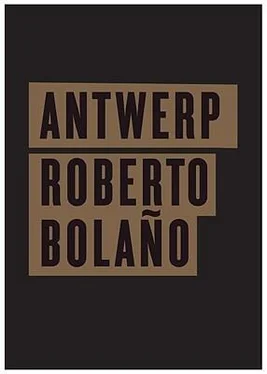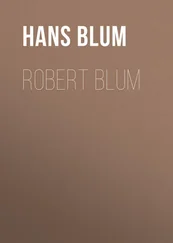for Alexandra Bolaño and Lautaro Bolaño
TOTAL ANARCHY: TWENTYTWO YEARS LATER
"THE ONLY NOVEL THAT DOESN'T EMBARRASS ME IS ANTWERP."
— ROBERTO BOLAÑO
I wrote this book for myself, and even that I can't be sure of. For a long time these were just loose pages that I reread and maybe tinkered with, convinced I had no time. But time for what? I couldn't say exactly. I wrote this book for the ghosts, who, because they're outside of time, are the only ones with time. After the last rereading (just now), I realize that time isn't the only thing that matters, time isn't the only source of terror. Pleasure can be terrifying too, and so can courage. In those days, if memory serves, I lived exposed to the elements, without my papers, the way other people live in castles. I never brought this novel to any publishing house, of course. They would've slammed the door in my face and I'd have lost the copy. I didn't even make what's technically termed a clean copy. The original manuscript has more pages: the text tended to multiply itself, spreading like a sickness. My sickness, back then, was pride, rage, and violence. Those things (rage, violence) are exhausting and I spent my days uselessly tired. I worked at night. During the day I wrote and read. I never slept. To keep awake, I drank coffee and smoked. Naturally, I met interesting people, some of them the product of my own hallucinations. I think it was my last year in Barcelona. The scorn I felt for so-called official literature was great, though only a little greater than my scorn for marginal literature. But
believed in literature: or rather, I didn't believe in arrivisme or opportunism or the whispering of sycophants. I did believe in vain gestures, I did believe in fate. I didn't have children yet. I was still reading more poetry than prose. In those years (or months), I was drawn to certain science fiction writers and certain pornographers, sometimes antithetical authors, as if the cave and the electric light were mutually exclusive. I read Norman Spinrad, James Tiptree, Jr. (whose real name was Alice Sheldon), Restif de la Bretonne, and de Sade. I also read Cervantes and the archaic Greek poets. When I got sick I reread Manrique. One night I came up with a scheme to make money outside the law. A small criminal enterprise. The basic idea was not to get rich too fast. My first accomplice or attempt at an accomplice, a terribly sad Argentinean friend, responded to my scheme with a saying that went something like this: if you have to be in prison or in the hospital, then the best place to be is your own country, for the visitors, I guess. His response didn't have the slightest effect on me, because I felt equally distant from all the countries in the world. Later I gave up my plan when I discovered that it was worse than working in a brick factory. Tacked up over my bed was a piece of paper on which I'd asked a friend from Poland to write, in Polish, Total Anarchy. I didn't think I was going to live past thirty-five. I was happy. Then came 1981, and before I knew it, everything had changed.
BLANES, 2002
When I consider the brief span of my life absorbed into the eternity which comes before and after — memoria hospitis unius diei praetereuntis — the small space I occupy and which I see swallowed up in the infinite immensity of spaces of which I know nothing and which know nothing of me, I take fright and am amazed to see myself here rather than there: there is no reason for me to be here rather than there, now rather than then. Who put me here? By whose command and act were this place and time allotted to me?
— PASCAL
Once photographed, life here is ended. It is almost symbolic of Hollywood. Tara has no rooms inside. It was just a façade.
— David O. Selznick
The kid heads toward the house. Alley of larches. The Fronde. Necklace of tears. Love is a mix of sentimentality and sex (Burroughs). The mansion is just a façade— dismantled, to be erected in Atlanta. 1959. Everything looks worn. Not a recent phenomenon. From a long time back, everything wrecked. And the Spaniards imitate the way you talk. The South American lilt. An alley of palms. Everything slow and asthmatic. Bored biologists watch the rain from the windows of their corporations. It’s no good singing with feeling. My darling, wherever you are: it’s too late, forget the gesture that never came. “It was just a façade.” The kid walks toward the house.
2. THE FULLNESS OF THE WIND
Twin highways flung across the evening, when everything seems to indicate that memory and finer feelings are kaput, like the rental car of a tourist who unknowingly ventures into war zones and never returns, at least not by car, a man who speeds down highways strung across a zone that his mind refuses to accept as a barrier, vanishing point (the transparent dragon), and in the news Sophie Podolski is kaput in Belgium, the girl from the Montfaucon Research Center (a smell unbefitting a woman), and the spent lips say “I see waiters, hired for the summer, walking along a deserted beach at eight o’clock at night” … “Slow movements, real or unreal I don’t know” … “A sandswept group” … “For an instant, a fat elevenyearold girl lit up the public pool” … “So is Colan Yar after you too?” … “The highway, a blacktopped strip of prarie?” … The man sits at one of the cafes in the hypothetical ghetto. He writes postcards because breathing prevents him from writing the poems he’d like to write. I mean: free poems, no extra tax. His eyes retain a vision of naked bodies coming slowly out of the sea. Then all that’s left is emptiness. “Waiters walking along the beach” … “The evening light dismantles our sense of the wind” …
3. GREEN, RED, AND WHITE CHECKS
Now he, or half of him, rises up on a tide. The tide is white. He has taken a train going in the wrong direction. He’s the only one in the compartment, the curtains are open, and the dusk clings to the dirty glass. Swift, dark, intense colors unfurl across the black leather of the seats. We’ve created a silent space so that he can work somehow. He lights a cigarette. The box of matches is sepiacolored. On the lid is a drawing of a hexagon made of twelve matches. It’s labeled “Playing with Matches,” and, as indicated by a 2 in the upper lefthand corner, it’s the second game in a series. This game is called “The Great Triangle Escape.” Now his attention comes to rest on a pale object. After a while he realizes that it’s a square that’s beginning to disintegrate. What he at first imagined was a screen becomes a white tide, white words, panes whose transparency is replaced by a blind and permanent whiteness. Suddenly a shout focuses his attention. The brief sound is like a color swallowed by a crack. But what color? The phrase “The train stopped in a northern town” distracts him from a shifting of shadows in the next seat. He covers his face with his fingers, spread wide enough so that he can spot any object coming at him. He searches for cigarettes in the pockets of his jacket. With the first puff, it occurs to him that monogamy moves with the same rigidity as the train. A cloud of opaline smoke covers his face. It occurs to him that the word “face” creates its own blue eyes. Someone shouts. He looks at his feet planted on the floor. The word “shoes” will never levitate. He sighs, turning his face to the window. A darker light seems to have settled over the land. Like the light in my head, he thinks. The train is running along the edge of a forest. In some spots, traces of recent fires are visible. He isn’t surprised not to see anyone on the edge of the forest. But this is where the little hunchback lives, down a bicycle path, a few miles deeper in. I told him I’d heard enough. There are rabbits and rats here that look like squirrels. The forest is bordered by the highway to the west and the railroad tracks to the east. Nearby there are gardens and tilled fields, and, closer to the city, a polluted river lined with junkyards and gypsy camps. Beyond that is the sea. The hunchback opens a can of food, resting his hump against a small, rotted pine. Someone shouted at the other end of the car, possibly a woman, he said to himself as he stubbed the cigarette out against the sole of his shoe. His shirt is longsleeved, cotton, with green, red, and white checks. The hunchback holds a can of sardines in tomato sauce in his left hand.
Читать дальше












